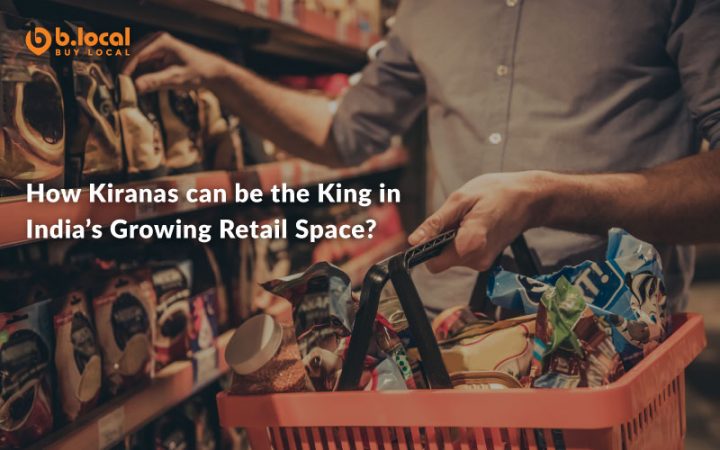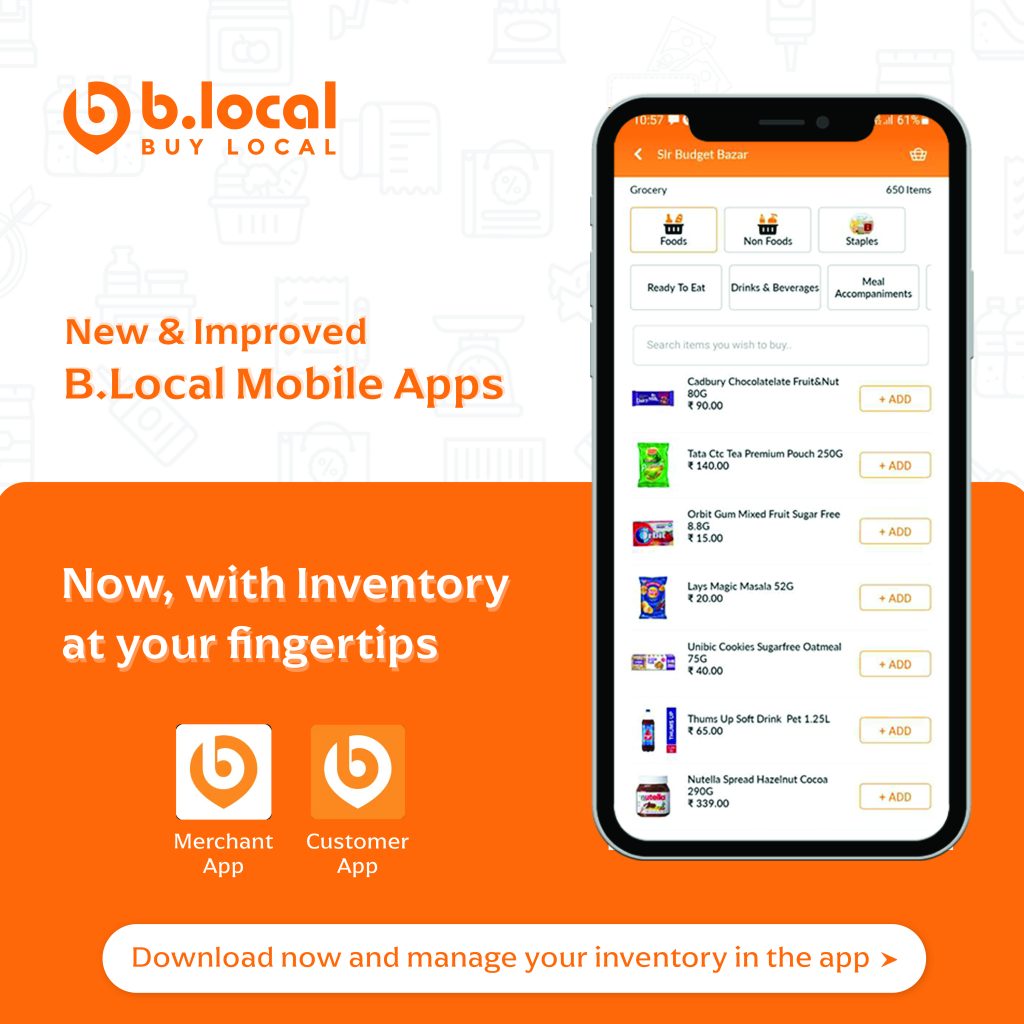Indian retail industry is highly fragmented with around 90% deemed as the unorganized sector that comprises local supermarkets, family-owned mom & pop stores, and Kirana shops. Even though these local Kirana stores remain the heart of hyper-local, the emergence and development of the organized sector and E-commerce players has started to pose threats in terms of business volumes and profits.
With large looming threats from Ecommerce and add to it the encroachment of offline retail business by the private players in the organized sector (from the likes of More, Reliance Fresh, Metro, DMart, and so on…), does this mean the end of the unorganized sector? Read the blog to find out.
Growth of Ecommerce & Organized Retail Players
In the 20th century, the Indian retail market witnessed the entry and development of the organized sector. The development of the organized sector is largely attributed to western influence and globalization. The organized retail market was valued at $60 Billion in 2019 and its share is projected to increase by 22-25% by the end of 2021 thereby reducing the share of the unorganized sector from 90% to 77%. This means the organized sector has the potential to reach approximately $140-160 Billion.
The Ecommerce retail sector which came into being a decade ago has started to slowly making inroads into the Indian retail space even though it faced some resistance at the beginning due to the perceived risks of online frauds. The convenience of getting goods delivered to the doorstep, availability of a wide range of products at lower prices than the local supermarkets, and lucrative discounts have helped to attract customers in recent years.
With the increasing smartphone and internet userbase, digitization of the economy, and favorable market conditions, the E-commerce industry will continue to grow exponentially in the coming years. In the last quarter of 2020, E-commerce orders volume in India increased by 36% with the largest beneficiary being the personal care, beauty, and wellness segment.
Around 22 Crores (220 million) people are expected to shop online by 2025 and the industry is expected to grow to INR 13,97,800 crore by 2027.
The online grocery market in India is estimated to increase from US$1.9 million in 2019 to US$ 18.2 billion in 2024, expanding at a CAGR of 57%.
So, what does this all mean to the small-format traders and the neighborhood supermarkets and Kirana stores – the unorganized segment that forms 90% of the Indian retail industry?
How can the Kirana stores withstand the tough competition from the large e-commerce companies and other private players? How can they attract the customers back and retain their larger share in the Indian retail space? The answer lies in these stores going online.
Kirana Shops Going Online – Convergence of Offline & Online Retail Business
The local supermarkets and Kirana stores can go online without the need to ditch their offline business.They can continue to cater to their offline customers as they start taking orders online. Adopting an e-commerce model will help these stores to widen their customer base and increase sales. The Kirana stores can jump onto the online bandwagon in three ways;
- Going Digital on their Own
Kirana stores can develop their e-commerce website or a mobile app of their own for their customers. But this involves higher cost and longer time for the development and release a website or an app. Besides, they should also invest in promotions to take the online space to their target customers.
- Tie-up with Large Online Retailers
The second option is for local physical outlets to tie up with large online retailers such as Amazon, Flipkart, Swiggy, etc., and use their marketplaces as e-retailing channels. It helps the local shops to overcome operational challenges, inefficient POS systems, lack of access to working capital, and inability to leverage advanced technology. But the downside is, the local physical outlets have to pay sell account charges or commission on the sales these shops generate.
- Onboard on to Hyperlocal Mobile Retail Platforms
There are hyper-local mobile retail platforms like Blocal where you can enroll for free and start selling online. The platform enables Kirana stores to hop onto their mobile app and establish and improve their business online while continuing their offline business. Blocal acts as a bridge connecting the online customers and their favorite local supermarkets in the neighborhood.
The platform offers a virtual storefront for small businesses like supermarkets, meat shops, fruits & vegetable outlets, and pharmacies. Not only Blocal gives these Kirana stores a digital presence, but it also promotes them online, targeting customers within their vicinity through various digital marketing initiatives.
Blocal – The best digital platform to grow your business! Contact us now to get an exclusive online space for your business.

